Retinal Disorder Treatment Across Texas

The retina plays a crucial role in vision. When disorders compromise the retina, it can affect your ability to see.
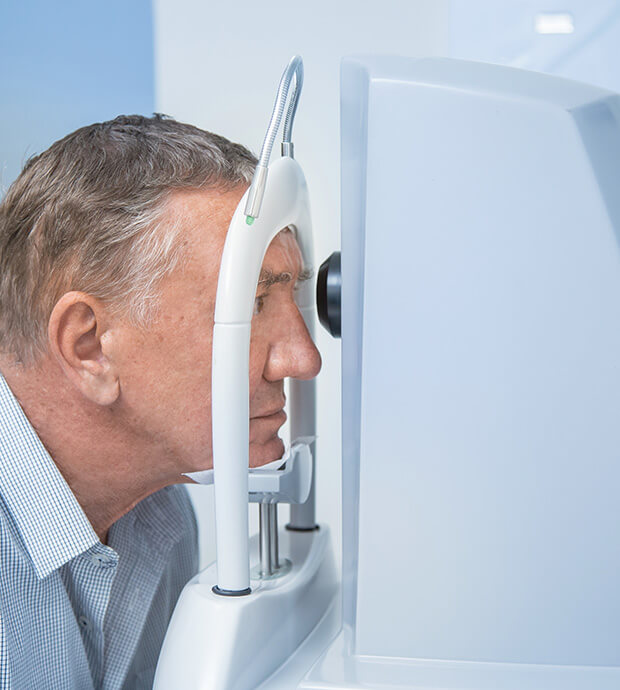
Advanced Eyecare for Retinal Health

Retinal disorders, such as macular degeneration, diabetic retinopathy, and retinal detachment, can have severe consequences, leading to significant vision loss or blindness if left untreated.
We have equipped ourselves with advanced diagnostics and treatment options to address these ocular conditions. Our commitment is to preserve your vision and enhance your quality of life, offering comprehensive care for even the most complex retinal disorders.
What Are Retinal Disorders?
Retinal disorders are a group of conditions that affect the retina, the thin layer of tissue at the back of the eye responsible for converting light into neural signals that the brain interprets as vision. These disorders can vary in their causes, symptoms, and severity, leading to vision impairment or loss.
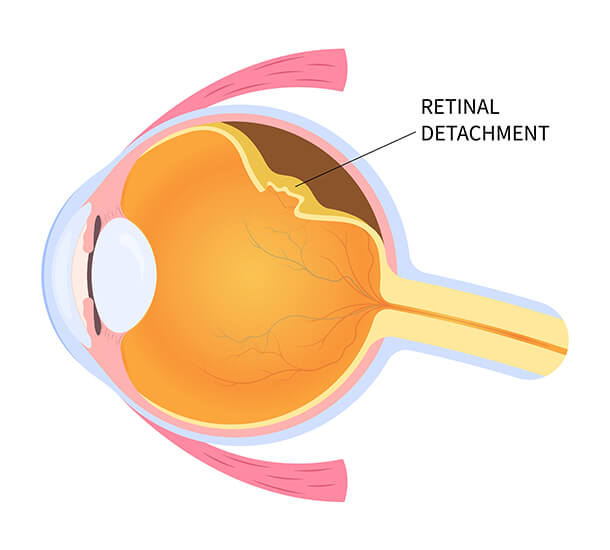

Are There Risks of Untreated Retinal Conditions?

Many retinal disorders, such as diabetic retinopathy and macular degeneration, can worsen, leading to significant vision deterioration. In severe cases, with conditions like untreated retinal detachment or advanced diabetic retinopathy, the damage can become irreversible, resulting in total blindness.
Some retinal diseases can lead to other eye problems, such as glaucoma or cataracts. Vision is crucial for independence and quality of life. Loss of vision from untreated retinal disorders can lead to difficulties in mobility, increased risk of accidents, inability to work, and dependence on others.

A Closer Look at Retinal Disorders
Diabetic Retinopathy:
This is a complication of diabetes caused by damage to the retina’s blood vessels. In the early stages, diabetic retinopathy may cause no symptoms or only mild vision problems. As the condition progresses, symptoms can include blurred vision, floaters, dark or empty areas in your vision, and vision loss.
Age-Related Macular Degeneration (AMD):
This condition affects older adults and deteriorates the macula, the part of the retina responsible for clear vision. AMD can cause loss of central vision, which is crucial for activities like reading and driving. Symptoms include visual distortions, the need for brighter light when reading, and difficulty adapting to low light levels.
Retinal Detachment:
A medical emergency in which the retina pulls away from its normal position at the back of the eye. Without immediate treatment, permanent vision loss can occur. Symptoms include a sudden appearance of floaters, flashes of light in one or both eyes, and a shadow or curtain over a portion of the visual field.
Retinitis Pigmentosa (RP):
A group of genetic disorders that affect the retina’s ability to respond to light. This causes a slow loss of vision, starting with decreased night vision and loss of peripheral vision. People with RP experience an initial loss of night vision, followed by a progressive decline in their peripheral vision, creating “tunnel vision.”
Macular Hole:
A small break in the macula, which can develop from the shrinking of the vitreous gel in the eye as part of the natural aging process or, more rarely, from injury. Symptoms include a noticeable decrease in central vision, visual distortion, and blurred images.

The Role of Technology in Treating and Managing Retinal Diseases
We provide quality care for patients with retinal disorders, utilizing the latest diagnostic and treatment technologies. Our state-of-the-art equipment ensures accurate diagnosis and effective management of various retinal conditions.
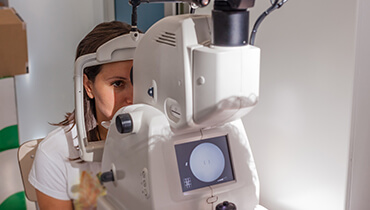
Optical Coherence Tomography (OCT):
This noninvasive imaging test uses light waves to take cross-section pictures of your retina. OCT allows for the visualization of the layers within the retina, aiding in the detection and management of conditions like diabetic retinopathy, macular holes, and macular degeneration.
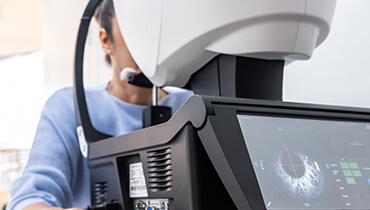
Visionix Machine:
This cutting-edge technology performs a comprehensive analysis of the eye. It’s beneficial for assessing the overall health and function of the retina and other ocular structures. This device is instrumental in early detection, allowing for timely intervention.
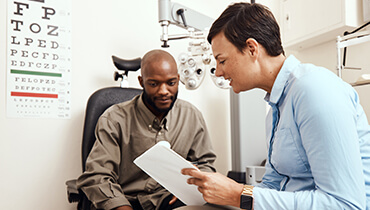
Electroretinogram (ERG):
A diagnostic test that measures the electrical response of the light-sensitive cells in the eyes. ERG is essential for diagnosing specific types of retinal disorders, particularly those affecting the function of the photoreceptor cells, such as retinitis pigmentosa.
Trust Advanced Eyecare & Vintage Eyewear for Retinal Disorder Treatment

Retinal diseases can profoundly impact your vision and, by extension, your overall quality of life. The inability to drive, read, or engage in visual tasks can diminish independence and lead to significant lifestyle changes and psychological effects.
Our team provides the highest level of care to preserve your vision and enhance your life.
Expertise in Retinal Disorders:
Our eye doctors are skilled in diagnosing and treating various retinal conditions. Their extensive training and experience ensure you receive care based on the latest medical insights and techniques.
Innovative Diagnostic Tools:
We employ state-of-the-art diagnostic technology to assess and monitor retinal health accurately. This allows for early detection of potential issues, crucial for preventing progression and planning effective treatment strategies.
Comprehensive Patient Education:
We believe in empowering patients with knowledge about their condition. Understanding your retinal disorder and its treatment options can help you manage your eye health actively.